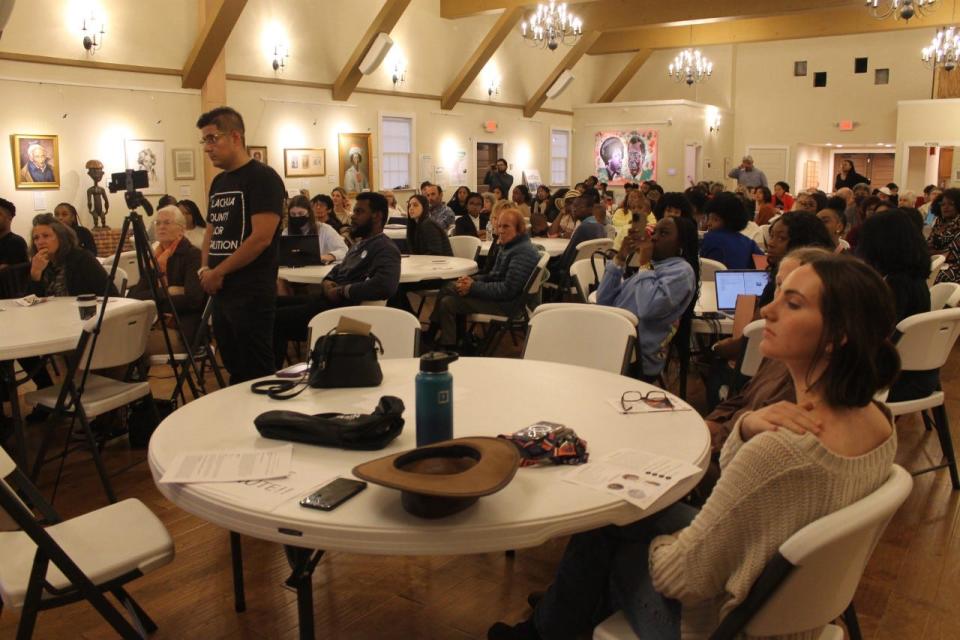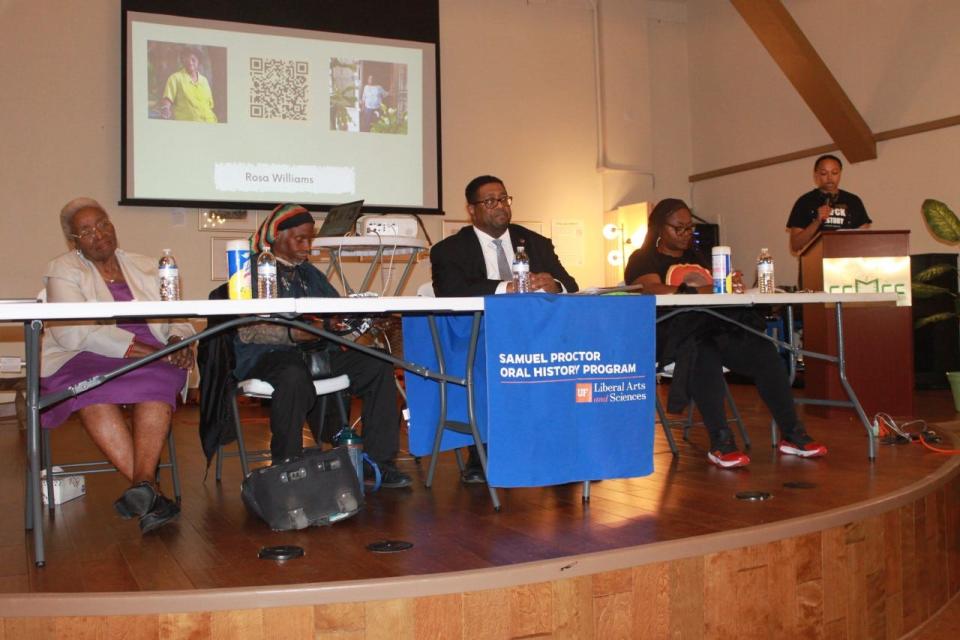Gainesville's Black community at heart of panel discussion
The impact of the University of Florida’s influence on Gainesville’s Black community was at the heart of a discussion held Monday at the Cotton Club Museum and Cultural Center.
The discussion was held at an event billed as “OverKome: Persevering with Collective, Community-Led Development.” It was hosted by UF's Samuel Proctor Oral History Program, Iota Lambda chapter of Alpha Kappa Alpha Sorority Inc. and the CCMCC. It was part of the 2023 Challenging Racism public program series organized by SPOHP.
It included a presentation highlighting local Black figures, as well as the panel discussion, to educate and inform those in attendance about the history of Gainesville's Black community.
Police chief:Former GPD chief Warren dies
Jim Crow:Gainesville Sun's coverage of race relations from reconstruction to Jim Crow era scrutinized
Black landmarks:Gainesville Sun's coverage of race relations from reconstruction to Jim Crow era scrutinized
The panelists included storyteller and historian Vivian Filer, community activist Kali Blount, teacher Marna Weston and community activist Chanae Jackson.
The issues discussed were violence, housing and property ownership, income and labor, food insecurity, health care and educational disparities.
UF students provided background on some of the important historical figures whose activism and work has shaped and supported Alachua County residents such as former all-Black Lincoln High School Principal the late A. Quinn Jones, the late historian Joel Buchanan and long-time Gainesville community organizer Rosa B. Williams.
The panel discussion was moderated by AKA members, Laura Thomas, UF's Black Student Union’s Black History Month director and her assistant, Jaquoi Dorsett.
The moderators asked who the panelist believed should have been recognized for their work.
Weston said educator Philoron Wright, historian Sherry DuPree and others.
Jackson said the late community activist Wilhelmina Johnson should be recognized for her work.
Blount said the late Atkins Warren, the first Black Gainesville police chief; the late Dr. Edgar Allen Cosby, a Black Gainesville dentist and the late Dr. Cullen W. Banks, a Black Gainesville physician, should be remembered as well, all of whom were pioneers locally in their respective professions.

Filer shared the importance of highlighting everyday people in the community.
“Their work is just as worthy,” Filer said. “You don’t always start at the top, they have to work their way up.”
The moderators asked the panelists what is the most important thing that must be addressed.
“As an educator, education is number one,” Weston said. “Education is a way to correct economic independence.”
Blount agreed and also said the violence against Black communities must be addressed.
“You have to stay alive to have an education at all,” Blount said in regards to police violence. “When you are repressing someone’s history, you are denying their humanity.”

Jackson said food insecurity was a pressing issue and Filer said there are many issues facing the Black community.
The moderators also asked the panelists what UF has done for local Black communities.
“They take intellectual property, monetize it, weaponize it and don’t give back to the community they take it from,” Jackson said.
Blount said the Black community in Gainesville is looked on as if it was on a “microscopic slide.”
There was also a discussion about how UF students and faculty can engage with the Black community in Gainesville.
“Black students and Black faculty have to get off of campus,” Filer said. “It’s very important to stick to the essence of who you are and embrace your individuality.”
The lack of unity hinders the Black community from being much better than it is, Blount said.
“As soon as the barriers went down, our community fell,” Blount said in regards to the effect of integration.
UF students and faculty must engage with the Gainesville community with sincerity, Jackson said.
“When you engage, engage in a meaningful way,” Jackson said. “I don’t want unity without justice. Your history is your identity. The reason we’re not united is because we don’t know our history. It is by design you don’t know what’s going on.”
This article originally appeared on The Gainesville Sun: UF's oral history program, CMCC and AKAs host event about Black community

